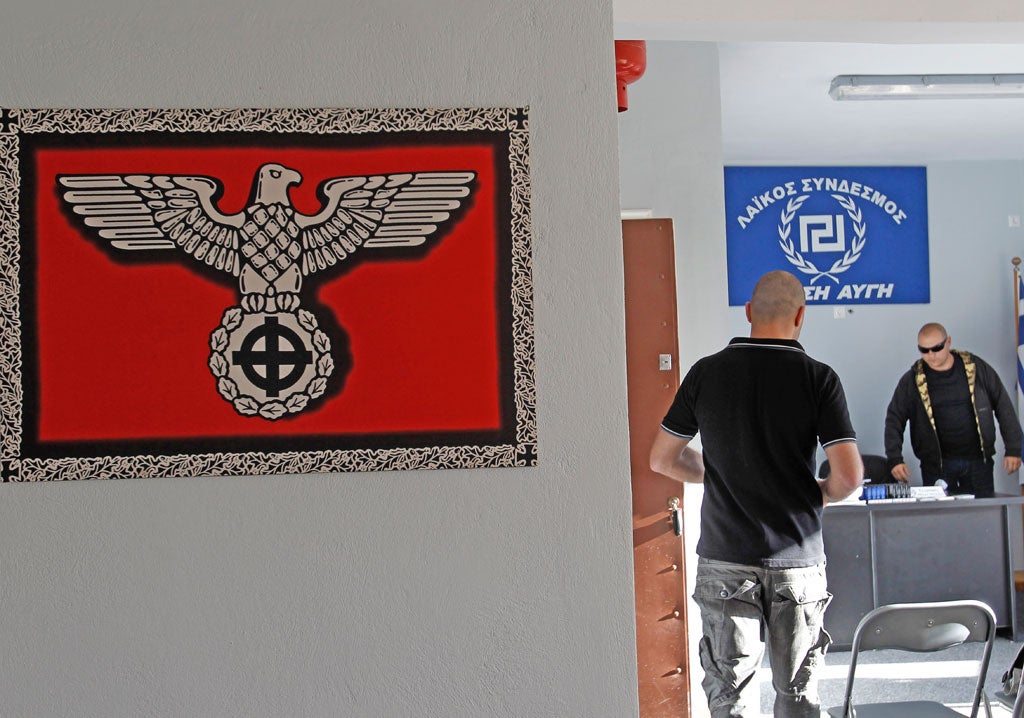The Independent's journalism is supported by our readers. When you purchase through links on our site, we may earn commission.

Your support helps us to tell the story
From reproductive rights to climate change to Big Tech, The Independent is on the ground when the story is developing. Whether it's investigating the financials of Elon Musk's pro-Trump PAC or producing our latest documentary, 'The A Word', which shines a light on the American women fighting for reproductive rights, we know how important it is to parse out the facts from the messaging.
At such a critical moment in US history, we need reporters on the ground. Your donation allows us to keep sending journalists to speak to both sides of the story.
The Independent is trusted by Americans across the entire political spectrum. And unlike many other quality news outlets, we choose not to lock Americans out of our reporting and analysis with paywalls. We believe quality journalism should be available to everyone, paid for by those who can afford it.
Your support makes all the difference.Norwegian Anders Breivik may have acted alone, but his trial for the murder of 77 people shone a spotlight on far right politics across Europe.
In the last ten years a backlash against immigration, the financial crisis and widespread disillusion with mainstream political parties has created fertile soil for the growth of a new kind of far right populism.
Gone is the racist rhetoric and anti-semitism of 20th century fascists. In its place is a criticism of multiculturalism that crosses over into centre right politics, and an anti-Islamism with the power to unite far right groups across European borders. In March 2012, the UK’s English Defence League (EDL) joined other groups in Aarhus, Denmark to protest the “Islamification of Europe” . Despite poor attendance, the event, along with reports of Anders Breivik’s online relationship with the EDL highlighted how social media is enabling a pan-European far right consensus to emerge.
While on the streets Neo-Nazi gangs commit heinous crimes in Germany, Russia and elsewhere, non-violent far right parties are serious electoral contenders in France, Sweden, Holland and Austria. In Germany the slang term Stiefelnazis (“Boot Nazis”) has been updated. It is now Kravattennazis (“Tie Nazis”).
The Numbers
63% of the online supporters of far right groups are under 30. Source: Demos
25,000 – The number of right-wing extremists living in Germany Source: Der Spiegel
58% of UK respondents associate Islam with extremism Source: BBC News UK
58.3% of BNP members strongly believe that “violence between different ethnic, racial or religious groups is largely inevitable." Source: Chatham House
Further Reading
Who are Breivik’s Fellow Travellers? Daniel Trilling, New Statesman, 2012
The New Face of Digital Populism, Demos, 2011
Nineteenth Report: Roots of violent radicalisation, Home Affairs Committee, 2012
From Voting To Violence: Exploring Far Right Extremists in Modern Britain, Dr Matthew Goodwin, Professor Jocelyn Evans, Chatham House, 2012
Timeline
June 2009 – BNP leader Nick Griffin is elected as a member of the European Parliament for North West England
March 2009 – The English Defence League emerges in Luton in response to protests against troops returning from Afghanistan
July 2011 – Anders Breivik murders 77 people in the name of far right ideology
April 2012 – Under the leadership of Marine le Pen France’s Front National win between 18 and 20 per cent of the first round presidential vote
May 2012 – Golden Dawn, a Greek neo-Nazi party win 7 per cent of the vote, earning them 21 seats in Greek Parliament.
Join our commenting forum
Join thought-provoking conversations, follow other Independent readers and see their replies
Comments